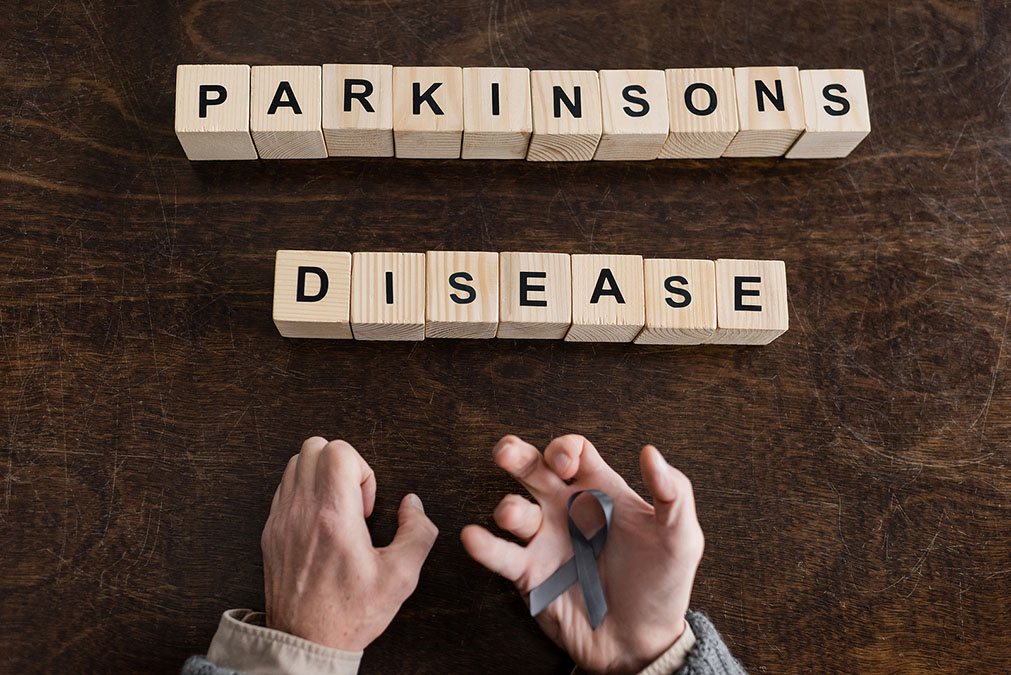 Parkinson’s has long been considered a genetic disease about which very little can be done.
Parkinson’s has long been considered a genetic disease about which very little can be done.
A new study in the journal npj Biofilms and Microbiomes changes that.
It reveals a very preventable cause of Parkinson’s and a possible cure through simple lifestyle changes.
Gut bacteria activate many genes and produce thousands of molecules in our bodies, including in our nervous systems. Researchers call this the gut–microbiota–brain axis.
Many studies have found this axis to be partly responsible for causing Parkinson’s.
Most Parkinson’s patients have problems with gastrointestinal symptoms, such as chronic constipation and problems emptying their bowels.
The article’s authors searched the available medical literature to find studies that linked gut bacteria and Parkinson’s disease. All of the studies they surveyed compared the gut bacteria of those with and without Parkinson’s.
They discovered some definite trends:
-
1. The bacterial species Bifidobacterium, Lactobacillus, and Akkermansia were increased in Parkinson’s patients. All of these cause inflammation when they are present in large amounts.
2. Desulfovibrio bacteria were increased in Parkinson’s patients. They produce hydrogen sulfide, which causes inflammation.
3. Streptococcus bacteria were also increased. They don’t usually infect healthy people but quickly infect people with impaired immune systems. They are also pro-inflammatory.
4. Bacteria that are known to produce short-chain fatty acids were reduced in Parkinson’s patients. These included the species Roseburia, Faecalibacterium, Blautia, Lachnospira, and Prevotella. Short-chain fatty acids fight off inflammation.
Overall, pro-inflammatory bacteria were abundant and anti-inflammatory bacteria were reduced in Parkinson’s patients, suggesting that inflammation plays an important role in Parkinson’s disease.
It is important to note that none of these bacteria are unhealthy when present in our guts. For example, Bifidobacteria are some of the first bacteria to be present in breastfed infants. They help to prevent colon cancer, treat diarrhea, treat inflammatory bowel disease, and kill unhealthy bacteria.
Bifidobacterium, Lactobacillus, and Akkermansia are included in most probiotics precisely because they can outcompete harmful bacteria and thereby kill them, as the researchers acknowledge.
These bacteria become problematic, however, when they occur in very large amounts compared with other bacteria that appear in the gut.
This tends to happen when we eat a diet that includes a very small variety of foods, such as people who live mostly on meat, eggs, and cheese.
It also happens when people eat large amounts of refined carbohydrates instead of the fibrous carbs that feed a wider variety of bacteria.
Therefore, to maintain a healthy colony of various gut bacteria, eat a diet with lots of fiber, fruit, vegetables, legumes, and nuts.

 Overcoming IBD
Overcoming IBD Multiple Sclerosis
Multiple Sclerosis Banishing Bronchitis
Banishing Bronchitis Gum Disease Gone
Gum Disease Gone Overcoming Onychomycosis
Overcoming Onychomycosis Neuropathy No More
Neuropathy No More The Prostate Protocol
The Prostate Protocol Brain Booster
Brain Booster
 Ironbound
Ironbound
 Solution for Shingles
Solution for Shingles
 The Bone Density Solution
The Bone Density Solution
 The Ultimate Healing Protocol
The Ultimate Healing Protocol
 The Parkinson's Protocol
The Parkinson's Protocol
 The Chronic Kidney Disease Solution
The Chronic Kidney Disease Solution
 Overthrowing Anxiety
Overthrowing Anxiety The Fatty Liver Solution
The Fatty Liver Solution The Hypothyroidism Solution
The Hypothyroidism Solution
 The End of Gout
The End of Gout The Blood Pressure Program
The Blood Pressure Program
 The Oxigized Cholesterol Strategy
The Oxigized Cholesterol Strategy
 Stop Snoring And Sleep Apnea Program
Stop Snoring And Sleep Apnea Program
 The Arthritis Strategy
The Arthritis Strategy The Vertigo & Dizziness Program
The Vertigo & Dizziness Program The 3-Step Diabetes Strategy
The 3-Step Diabetes Strategy Hemorrhoids Healing Protocol
Hemorrhoids Healing Protocol The Erectile Dysfunction Master
The Erectile Dysfunction Master Weight Loss Breeze
Weight Loss Breeze The IBS Program
The IBS Program The Insomnia Program
The Insomnia Program The Migraine and Headache Program
The Migraine and Headache Program The Neck Pain Solution
The Neck Pain Solution The Menopause Solution
The Menopause Solution The Ejaculation Master
The Ejaculation Master The TMJ Solution
The TMJ Solution The Acid Reflux Solution
The Acid Reflux Solution The Fibromyalgia Solution
The Fibromyalgia Solution The Psoriasis Strategy
The Psoriasis Strategy